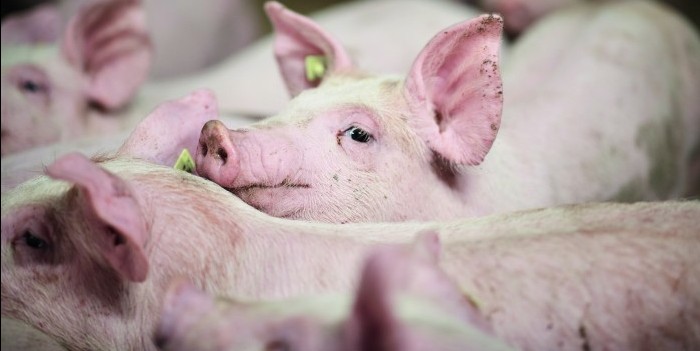The NPA has warned that time is running out for the UK pig industry and is urging the Government to take immediate action to address the labour crisis crippling the food and farming sector.
There are currently an estimated 85,000 extra pigs on farms across the UK due to the chronic shortage of labour affecting meat processing plants. With the backlog increasing by approximately 15,000 per week, farmers are running out of space fast, NPA chief executive Zoe Davies said.
The pig industry has already taken a battering over the past year or so, as a ‘perfect storm’ of COVID-19, Brexit and record costs of production has already forced some to quit the industry.
While empty retail shelves and product shortages are becoming increasingly commonplace and Christmas specialities, such as pigs in blankets are already under threat, the knock-on effect of the staff shortages is having a devastating effect on the country’s pig farmers, Dr Davies added.
The first half of 2021 was the pig sector’s worst financial performance on record on the back of record costs of production. Producers lost £116 million over the first six months of this year, according to AHDB estimates, which is clearly not sustainable. There is no sign of any immediate let up in the financial pressures the industry is facing.
“We are already seeing producers up and down the country getting out of pigs or cutting down on numbers because they cannot sustain these losses any longer,” Dr Davies said.
“The pig backlog is now creating further problems for farmers, forcing them to find extra cash for expensive feed and incur penalties for selling overweight pigs. Many are now being forced to face the real prospect of having to destroy pigs because there is simply nowhere for them to go.
“Some of the conversations I have had over the past few weeks have been heart-breaking, with many producers getting desperate and not sure what the future holds.
“Without immediate Government intervention, more producers will be pushed over the edge. 22,000 sows have already been lost from the national herd this year, and this is just the start. Sadly we are expecting a serious contraction of the UK pig industry as a result, largely of the smaller independent farmers who are most at risk.”
COVID Recovery Visa
The NPA was one of the food and farming organisations behind a report by Grant Thornton, which called on Ministers to introduce a 12-month COVID Recovery Visa to help alleviate the food supply workforce shortages.
The report estimates there are more than 500,000 vacancies across food and drink businesses and sets out how the COVID Recovery Visa could be a vital short-term measure to enable food businesses to access foreign labour while the economy recovers from COVID-19.
However, the Government appears unwilling to accept the calls. Business Secretary Kwasi Kwarteng told business leaders foreign labour only offered ‘a short-term, temporary solution’ and urged employers to help the ‘many UK-based workers’ who need to find new employment opportunities’, according to the Financial Times.

Dr Davies said this sort of response highlighted a deep lack of understanding about the labour crisis. “A short-term solution is exactly what we need right now. The pork supply chain has tried for many years to recruit more workers from the domestic workforce, but there aren’t the number of trained workers out there to fill the vacancies that exist now,” she said.
“And suggesting that we can access people coming out of the furlough scheme is completely naïve – for a start we cannot wait until the end of September – this crisis is happening now. In addition, many of these people do not live where food manufacturing occurs, they aren’t skilled so would take time to train and I doubt that many would want to work in an abattoir.
“Unless the Government intervenes soon to help alleviate the labour shortage, more producers will quit – and they won’t come back.
“I cannot believe that this is what the British public voted for when they voted for Brexit. The irony of having to import more pork from the EU as we watch our home market collapse is astounding.”




